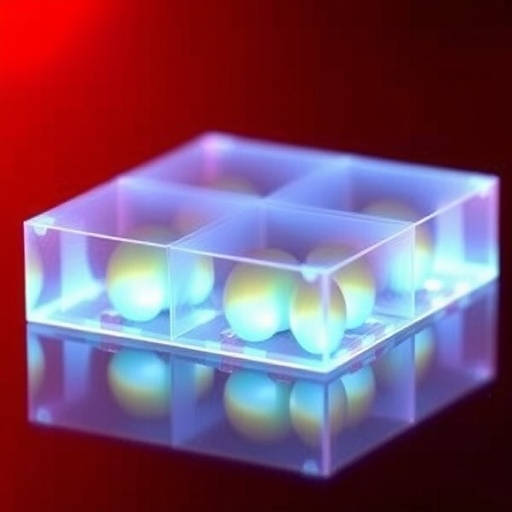In a groundbreaking study, researchers from India have delved into the innovative world of energy conversion, particularly focusing on dye-sensitized solar cells (DSSCs) that operate without the need for platinum-based electrodes. This notable research highlights the sustainable potential of biomass-derived materials to fabricate rGO-Ni, Co mixed-oxide counter electrodes, presenting a promising alternative that could reduce both costs and environmental impact in solar energy applications.
Dye-sensitized solar cells have garnered significant attention in recent years due to their unique ability to convert sunlight into electricity using a variety of organic and inorganic materials. Conventional DSSCs typically use platinum as a catalyst in their counter electrodes, a material that, while effective, poses considerable challenges in terms of cost and resource scarcity. This study proposes the use of reduced graphene oxide (rGO) integrated with nickel and cobalt oxides, derived from biomass, as a viable substitute.
The process of synthesizing these mixed-oxide electrodes begins with the conversion of biomass materials into rGO. Researchers employ a chemical reduction method, utilizing environmentally benign reducing agents, to ensure that the resultant rGO retains the necessary electrical conductivity while also being highly porous. This is crucial because the porosity enhances the electrochemical activity of the electrodes, leading to improved overall performance in DSSCs.
An essential aspect of the study lies in the effectiveness of the rGO-Ni, Co mixed-oxide electrodes. The incorporation of nickel and cobalt oxides enhances the catalytic properties of the electrodes significantly. These materials contribute to facilitating electron transfer during the redox reactions that occur within the solar cell, subsequently improving the energy conversion efficiency. The study presents comparative data, demonstrating that these innovative electrodes perform on par with their platinum counterparts in various efficiency metrics.
It is also worth noting the environmental benefits associated with utilizing biomass-derived materials in energy technologies. The reliance on agricultural and forestry waste not only mitigates waste management issues but also minimizes the carbon footprint of the solar cell production process. By tapping into renewable resources, this research aligns with global sustainability goals, effectively promoting a circular economy model in energy storage and conversion systems.
Testing of these electrodes in operational DSSCs revealed promising results, with efficiencies that align with current market standards for platinum-based cells. Researchers conducted detailed electrochemical assessments to evaluate charge transfer resistance, revealing that the rGO-Ni, Co electrodes exhibit lower charge transfer resistance compared to traditional platinum electrodes. This finding is significant as it suggests that the newly developed electrodes can enhance the overall energy harvesting capabilities of DSSCs.
Moreover, the stability of the biomass-derived electrodes was a focal point of the investigation. Long-term testing showcased that these mixed-oxide electrodes maintain their structural integrity and efficiency over extended periods. This resilience is crucial for commercial applications, as stability directly impacts the lifespan and reliability of the solar cells in real-world conditions.
The implications of this research extend beyond the immediate benefits of cost and sustainability. By providing a feasible pathway to develop Pt-free DSSCs, this study could reshape the landscape of solar energy technology. With increasing global energy demands and the pressing need to transition to renewable energy sources, adopting such innovative approaches is not merely advantageous but essential for advancing energy technologies.
Furthermore, the versatility of biomass as a raw material means that various types of organic waste can be utilized, expanding the potential for diverse applications. As industries and researchers continue to explore alternative sources of energy, the adaptability of these new materials could lead to innovations in other fields such as electronic devices and energy storage systems.
In summary, this research represents a significant stride toward sustainable energy solutions, innovatively harnessing waste materials to create high-performing, cost-effective alternatives to traditional solar cell technologies. The findings of the study are poised to pave the way for further explorations into the capabilities of biomass-derived materials in the quest for greener energy solutions, ensuring that the future of energy generation remains within our planet’s ecological limits.
As these insights circulate within the scientific community and beyond, we can anticipate increasing interest and investment in research centered on sustainable, low-cost energy technologies. This aligns with the broader trend toward enhancing the efficiency of renewable energy systems and rethinking our approaches to resource utilization in an ever-evolving technological landscape.
In conclusion, the development of rGO-Ni, Co mixed-oxide counter electrodes signals a pivotal shift in the solar energy sector. By focusing on materials that are both sustainable and effective, researchers are laying the groundwork for a future where clean energy is not just a dream, but a reality available to all.
Subject of Research: Biomass-Derived rGO–Ni, Co Mixed-Oxide Counter Electrodes for Sustainable Energy Solutions
Article Title: Biomass-Derived rGO–Ni, Co Mixed-Oxide Counter Electrodes: A Sustainable Route To Pt-Free DSSCs
Article References:
Rajkumar, T., Navaneethan, S., Saravanan, V. et al. Biomass-Derived rGO–Ni, Co Mixed-Oxide Counter Electrodes: A Sustainable Route To Pt-Free DSSCs.
Waste Biomass Valor (2025). https://doi.org/10.1007/s12649-025-03396-9
Image Credits: AI Generated
DOI: https://doi.org/10.1007/s12649-025-03396-9
Keywords: biomass, dye-sensitized solar cells, reduced graphene oxide, nickel, cobalt, renewable energy, sustainability, energy conversion, mixed-oxide electrodes, platinum-free, environmental impact, green energy solutions.




